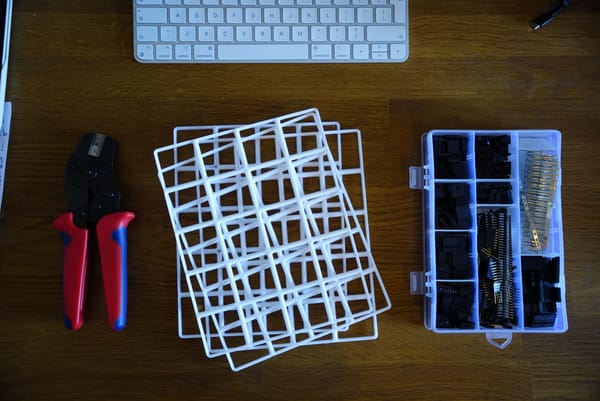How I schedule for small success

Self-development. Productivity. Growth. Entrepreneurship. If you’re anything like me, you’ll recognise the struggle to become better in some respect, every day. It’s not easy, especially when your pursuit is solitary. In this article, I’ll share with you my shift towards a healthier way of starting my days, and the impact it has had on my life.
Part 1. The fallacy of treating yourself as the bad employee

Truly good things in life take time and effort. Learning a new skill, completing a creative work, improving a routine, curbing a vice – all change encounters resistance. The “new” has to battle the “old”, and the “old” will not just give up easily. Chaos fights with the established Order, so that a new Order can emerge and, with it, a new, better YOU.
We both know that the initial struggle and frustration that comes with any change is well worth the pain, eventually. The sacrifice of today is well worth the reward to be reaped over the coming months and years. That’s all fine, but what about today, when I have to face the very real urge to procrastinate or even worse? What do I do today?
To-do lists, plans, schedules, trackers, journals. We come up with new templates and tools to make our productivity as streamlined and enforceable onto ourselves as possible.
We fight and push our own beings into a corner from which we surely should have no choice or reason not to start cutting through the mess that governs our life.
And yet, often, we fail.
We treat ourselves like we’d treat an enemy or, at best, an employee we really don’t trust. But in doing so, are we not in fact self-sabotaging? Would you work for a boss who tries to squeeze all the fun out of life and tries to micromanage your every move? Perhaps yes, for a day. Perhaps for a week. But, sooner or later, you’ll give up.
Is there a better way to get things done? Is there a better way to grow and improve?
Well, this is what I discovered to work for me. And I mean it – it really does. Here’s how simple it is. Above all, our journey starts from a different position.
Part 2. An employee that wants to work for you

A typical schedule: me telling myself to do this, do that, do the other thing. An endless list of things I don’t want to do. And (perhaps to no surprise) I end up procrastinating and wasting away.
There’s a better way.
Set the schedule so that you have the day you want. That’s the trick.
Let’s say you’re just starting your day. Sit down, grab a pen and really talk to yourself.
“Ok, so if I was going to set today up to be the best day I could possibly want to have, practically speaking, what would my schedule look like?”
And you schedule that. Negotiate with yourself as if you would with someone you care deeply for and you want to have a good life with. Instead of being your own tyrant, negotiate with yourself as if you would negotiate with someone you want to keep on your side and work for you (not despite you) today, and tomorrow, and maybe the day after that. Negotiate with yourself fairly, as if your life depended on it.
Don’t be afraid to answer for “What are you going to do for me that will make it likely I’ll work for you?” Schedule in play. Perhaps a lot of play at first. Maybe only 20% of your day will be responsibility and obligation. Maybe more than that if you’re really far behind – but even that can come out of a dialogue with yourself. Because what you want, ultimately, is to emerge from your day a little better than you started it. You definitely don’t want the day to be worse.
Negotiate with yourself and find the right ratio of play and responsibility, so that you can look back at the schedule and think “Ok, yes, if I had that kind of day, it would be good.”
Still, even then you’ll probably not achieve all you originally thought you could because let’s face it, we’re useless and horrible and human. You might your schedule only with 80% accuracy. Or 50%.
But even 50% beats the hell out of 0%! And maybe next week you’ll get to 51%. Or even 50.5%. Because that’s what you want – things to loop positively, and eventually spiral you upwards.
Part 3. This is how I do it

I’ve started this about a month ago, and it’s worked wonders. I’ve fine-tuned the approach to this:
- Each morning, I sit down in silence (all devices are turned off), turn to a blank piece of paper and write: “What would make today a good day?”
- I pause and think before I rush in with a laundry list of things. What are, realistically, the things that would improve my position, but not overwhelm my chances to actually do them. Well… perhaps a bit of reading. Perhaps some Cloud training.
- Once I finish listing the things that I (the long-term “I”) want to work on, I then make room for the “short-term” I of today. What would be the right things to reward myself for doing this. Well… perhaps playing for a couple of hours on the PS. Perhaps watching this junk Youtube programme.
- At the end of the list, I look back and think if this is a day worth living. Am I excited about it? If I’m not, I’ll make changes. Otherwise, I write “Let’s do this then!” and begin.
I never attack things in order and often I have things that I haven’t done anything about at the end of the day. But somehow, despite falling short of my own expectations constantly, I’m happy. Looking back on my month, there is not one single day when I haven’t achieved at least something that made it worth it. It’s great. Try it.
Part 4. Key takeaways
- Your schedule is not your prison. Your schedule is a blueprint for a day worth living. It should answer the question: “How can I organise my day so that it can be the best day I can possibly have?”
- Negotiate with yourself as if you’d negotiate with an employee you want to work for you. Think about your “long-term self” talking with your “short-term self”. Perhaps questions like: “what can you do for me to pay attention”, “what can you do for me to work for you today”.
- Your ultimate goal is to end your day in a slightly better position than you started it, for as many days as possible. Towards that goal, don’t hesitate to add enough play to your schedule to make the bargain fair for your “short-term self”
- Don’t be frustrated when you fail. Just continue the constructive dialogue with yourself to see genuinely what went wrong and strive to be slightly better next time.
Once you calibrate and get into the groove of doing things for yourself (not against yourself), you’ll see the resistance fading. Life will start pulling you upwards. Instead of avoiding things, now your days will pull you towards more enjoyable experiences. You’ll notice how you’ll start to become more present, more alert, more engaged. And when you do, drop me a line so that I can be happy for you, with you!!
Part 5. If you made it this far…
Let me know how you found this article? Did you find anything here useful or anything you consider implementing into your own routine? Would others find it useful as well? I’m only beginning to put my thoughts in structured long-form and could really use advice. Thanks in advance!! Have a lovely day!




